Israel PM Says Killing Of Hamas Chief 'Beginning Of The End' Of Gaza War

Israeli Prime Minister Benjamin Netanyahu said Thursday that the killing of Hamas chief Yahya Sinwar in the Gaza Strip was the "beginning of the end" of the year-long war in the Palestinian territory.
The Israeli military said that after a lengthy hunt, troops had on Wednesday "eliminated Yahya Sinwar, the leader of the Hamas terrorist organisation, in an operation in the southern Gaza Strip".
Hamas has not confirmed his death.
Netanyahu, who vowed to crush Hamas at the start of the war, hailed Sinwar's killing, saying: "While this is not the end of the war in Gaza, it's the beginning of the end."
He had earlier called Sinwar's death an "important landmark in the decline of the evil rule of Hamas".
The chief of Hamas in Gaza at the time of the October 7 attack that sparked the war, Sinwar became the militant group's overall leader after the killing in July of its political chief, Ismail Haniyeh.
He is said to have masterminded the October 7 attack, the deadliest in Israeli history, which resulted in the deaths of 1,206 people, mostly civilians, according to an AFP tally of official Israeli figures that includes hostages killed in captivity.
Israel's announcement of Sinwar's death comes weeks after it assassinated Hezbollah chief Hassan Nasrallah in a strike in Lebanon, where the Israeli military has been at war since late September.
With Hamas already weakened more than a year into the Gaza war, Sinwar's death deals an immense blow to the organisation.
US President Joe Biden, whose government is Israel's top arms provider, said: "This is a good day for Israel, for the United States, and for the world."
"There is now the opportunity for a 'day after' in Gaza without Hamas in power, and for a political settlement that provides a better future for Israelis and Palestinians alike."
Militants also seized 251 hostages during the October 7 attack and took them into Gaza. Ninety-seven remain there, including 34 who Israeli officials say are dead.
Following the attack, Netanyahu vowed to defeat Hamas and bring home all the hostages.
Israel's retaliatory campaign has killed 42,438 people in Gaza, the majority civilians, according to data from the health ministry in the Hamas-run territory, figures which the UN considers reliable.
Israeli military chief Herzi Halevi said: "We are settling the score with Sinwar, who is responsible for that very difficult day a year ago."
He vowed the military would keep fighting "until we capture all the terrorists involved in the October 7 massacre and bring all the hostages home".
Some Israelis hailed the news of Sinwar's death as a sign of better things to come.
"I am celebrating the death of Sinwar, who has brought us nothing but harm, who has taken people hostage," said one Israeli woman, Hemda, who only gave her first name.
Attending a Tel Aviv rally demanding the hostages' release, 60-year-old Sisil, who also gave only her first name, said his killing presented a "once in a lifetime opportunity" for "a hostage deal to end the war".
But whether the Hamas chief's death will bring the end of the war any closer is unclear.
Warning that the hostages were in "grave danger", Israeli military historian Guy Aviad said Sinwar's killing was "a significant event... but it's not the end of the war".
Campaign group the Hostages and Missing Families Forum urged the Israeli government and international mediators to leverage "this major achievement to secure hostages' return".
According to a statement from Netanyahu's office, Biden called him to congratulate him on Sinwar's killing, with the two leaders vowing to seize "an opportunity to promote the release of the hostages".
Netanyahu said Palestinian militants should free the hostages if they want to live.
The Israeli military said Sinwar was killed in a firefight in southern Gaza's Rafah, near the Egyptian border, while being tracked by a drone.
It released drone footage of what it said was Sinwar's final moments, with the video showing a wounded militant throwing an object at the drone.
With the civilian toll in Gaza mounting, Israel has faced criticism over its conduct of the war, including from the United States.
In northern Gaza's Jabalia, two hospitals said Israeli air strikes on a school sheltering displaced people killed at least 14 people, though the military reported that it had hit militants.
According to a UN-backed assessment, some 345,000 Gazans face "catastrophic" levels of hunger this winter.
Nearly 100 percent of Gaza's population now lives in poverty, the UN's International Labour Organization said, warning that the war's impact on Gaza "will be felt for generations to come".
Israel is also fighting a war in Lebanon, where Hamas ally Hezbollah opened a front by launching cross-border strikes that forced tens of thousands of Israelis to flee their homes.
Hezbollah said Thursday it was launching a new phase in its war against Israel, saying it had used precision-guided missiles against troops for the first time.
On the same day, Israel conducted strikes on the south Lebanese city of Tyre, where the militant group and its allies hold sway.
The Lebanese National News Agency reported strikes on the Bekaa Valley, after Israel had issued an evacuation warning for civilians there.
In Lebanon, the war since late September has left at least 1,418 people dead, according to an AFP tally of Lebanese health ministry figures, though the real toll is likely higher.
The war has also drawn in other Iran-aligned armed groups, including in Yemen, Iraq and Syria.
Iran on October 1 conducted a missile strike on Israel, for which Israel has vowed to retaliate.
Tehran's mission to the United Nations said Thursday that Sinwar's killing would lead to the strengthening of "resistance" in the region.
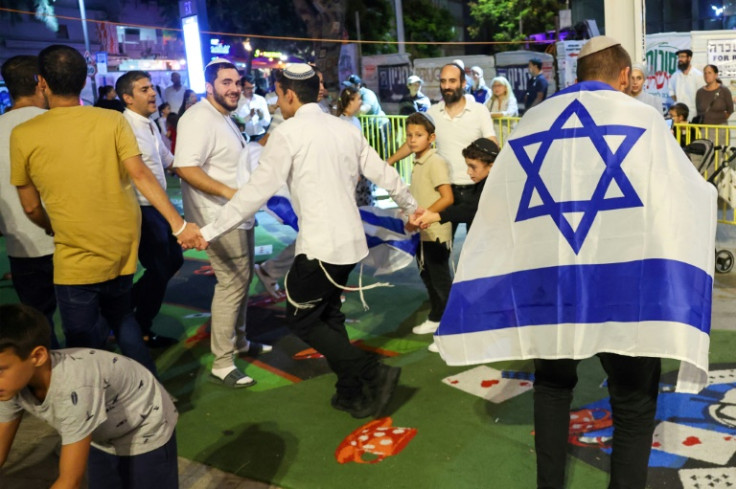
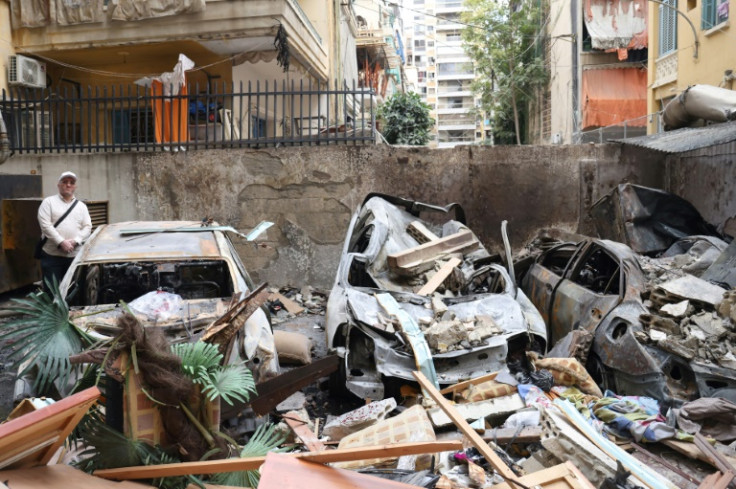
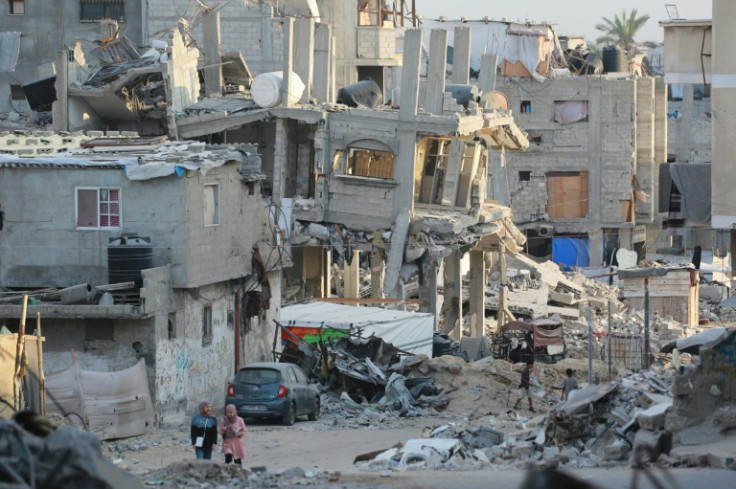
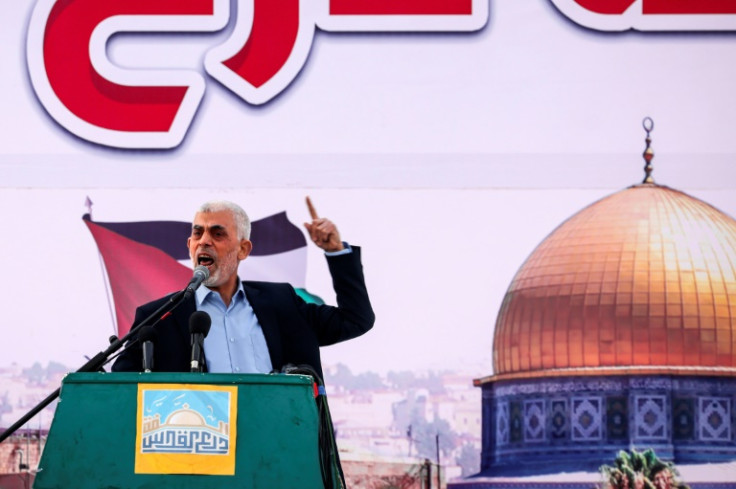
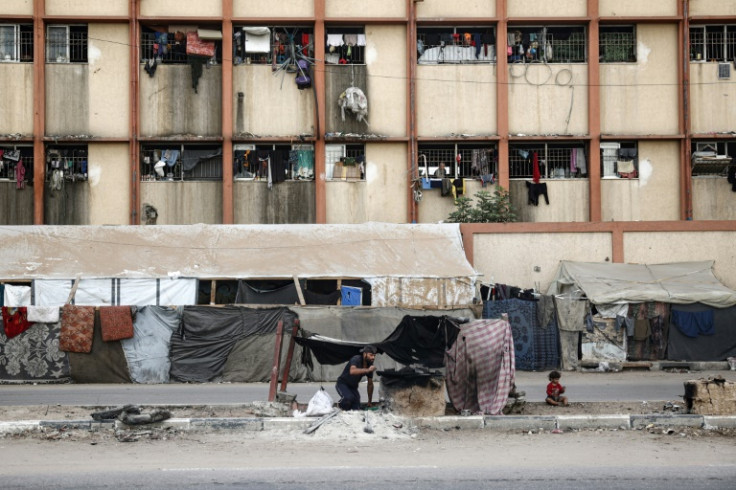
© Copyright AFP 2025. All rights reserved.





















